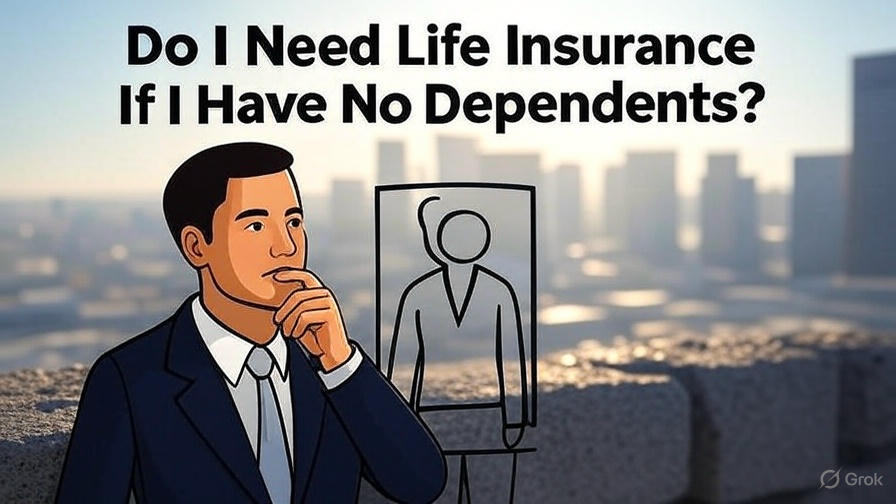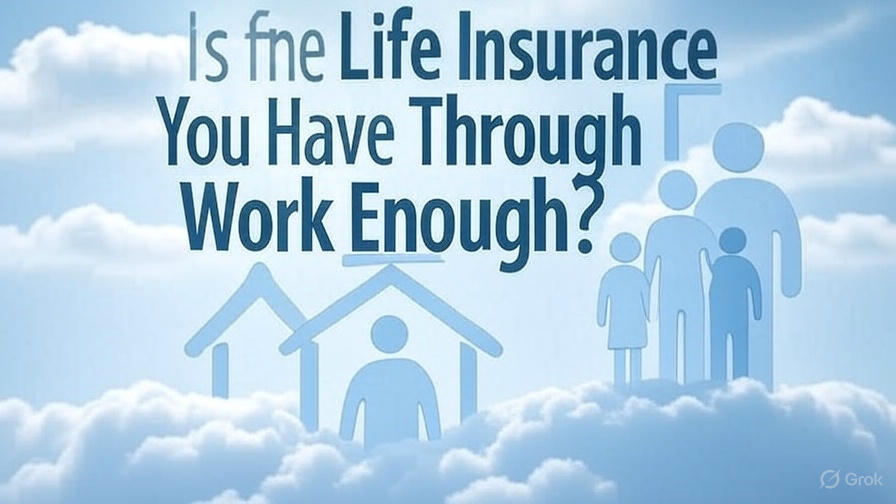Financial scams are unfortunately common, which makes it crucial to be cautious about where we place our trust and money. The insurance industry, particularly companies using network marketing or multi-level marketing (MLM) strategies, often faces scrutiny.
Senior Life Insurance Company is one such company that has sparked questions about whether it operates as a pyramid scheme. This article dives deep into Senior Life’s operations, business model, customer feedback, and regulatory status to determine if it’s a legitimate business or something to avoid.
By the end, you’ll have a clear picture of whether the Senior Life Insurance Company is trustworthy.
Table of Contents
What is a Pyramid Scheme?
To answer whether Senior Life Insurance Company is a pyramid scheme, we first need to understand what a pyramid scheme is. A pyramid scheme is a fraudulent business model where participants earn money primarily by recruiting others into the scheme, rather than through selling genuine products or services.
The structure resembles a pyramid: each new recruit brings in more people, and money flows upward to earlier participants. These schemes rely on an ever-growing number of recruits to sustain payouts, but when recruitment slows, they collapse, leaving most participants with losses.
Pyramid schemes are illegal in many countries, including the United States, because they lack a legitimate product or service. The focus is on recruitment fees, not value creation. In contrast, legitimate multi-level marketing (MLM) companies sell real products or services.
While MLMs may involve recruitment, their primary revenue comes from product sales, not just membership fees. Understanding this distinction is key to evaluating Senior Life’s operations.
Overview of Senior Life Insurance Company
Senior Life Insurance Company was founded in 1970 by Ron Powell, who began his career in insurance at age 18 and later built his own agency before establishing Senior Life. The company operates in 40 states and employs over 6,500 agents.
Its mission is to provide affordable final expense insurance, also known as burial insurance, to help seniors cover costs like funerals, burials, or cremations, ensuring their families aren’t burdened with these expenses.
Senior Life offers policies with coverage up to $50,000, requiring no medical exams, which makes them accessible to those with pre-existing health conditions.
The company emphasizes quick claim processing, with most claims paid within 24 hours, offering peace of mind to policyholders.
Policies are available for individuals aged 0 to 85, with premiums based on factors like age, health, and policy type. Senior Life’s focus on seniors and its no-exam policy set it apart in the insurance market.
Business Model of Senior Life Insurance Company
Senior Life Insurance Company sells its policies through a network of independent agents. These agents are responsible for marketing and selling insurance products directly to consumers.
Additionally, agents are encouraged to build teams by recruiting and training other agents, a structure that resembles multi-level marketing.
Agents earn commissions from the policies they sell, and they can also earn bonuses based on the performance of their recruited team members.
This recruitment aspect might raise concerns, as it resembles how some pyramid schemes operate. However, Senior Life’s revenue comes from insurance premiums, not recruitment fees.
The company provides agents with tools, training, and support, including a mobile app for leads and presentations, same-day commission payments, and perks like health insurance and stock ownership opportunities.
This structure is common in the insurance industry, where companies rely on agent networks to distribute products efficiently.
| Aspect | Details |
| Primary Revenue | Insurance premiums from policy sales |
| Agent Role | Sell policies, recruit and train other agents |
| Compensation | Commissions up to 150% on first-year premiums, bonuses for team performance |
| Support | Training, leads via app, same-day pay, health insurance, stock ownership |
Is Senior Life Insurance Company a Pyramid Scheme?
To determine if Senior Life Insurance Company is a pyramid scheme, we need to compare its operations to the characteristics of a pyramid scheme. Here are the key points:
- Legitimate Product: Senior Life sells regulated insurance policies, such as whole life and term life plans, that provide real financial protection. These policies are designed to cover funeral costs and other end-of-life expenses, offering tangible value to customers. Unlike pyramid schemes, which often lack a genuine product, Senior Life’s offerings are legitimate and regulated.
- Revenue Source: The company’s primary revenue comes from insurance premiums, not from fees charged to new agents. While agents can earn bonuses for recruiting, their main income is from policy sales, aligning with legitimate MLM models rather than pyramid schemes.
- Regulation: Senior Life is licensed by state insurance departments, which enforce strict rules on insurance companies to protect consumers. This regulatory oversight ensures that Senior Life operates within legal boundaries, unlike pyramid schemes, which often evade regulation.
- Longevity: Operating for over 50 years, Senior Life has a long track record, which is uncommon for pyramid schemes that typically collapse within a few years due to their unsustainable structure.
- Customer Base: The company serves a large customer base across multiple states, indicating demand for its insurance products. This contrasts with pyramid schemes, which focus on recruitment over product sales.
While Senior Life’s agent recruitment model may resemble an MLM, this is a standard practice in the insurance industry. Companies like Lincoln Heritage and others use similar models without being classified as pyramid schemes. The key difference is that Senior Life’s focus is on selling insurance, not just recruiting agents.
Customer Reviews and Complaints
Customer feedback about Senior Life Insurance Company is mixed, as is common in the insurance industry. Positive reviews often praise the ease of obtaining coverage without a medical exam and the speed of claim processing.
For example, a customer from Indiana shared, “I got my policy quickly, and when I filed a claim, it was paid in just a few days. Great service!” Such testimonials highlight the company’s ability to deliver on its promises for some clients.
However, negative reviews exist as well. Some customers report issues with claim denials, often due to undisclosed pre-existing conditions or policy exclusions. One customer noted, “My claim was denied because of a health issue my father didn’t mention, even though we thought it was covered.” Others have mentioned high-pressure sales tactics by some agents, a common complaint in the industry but not unique to Senior Life.
These complaints don’t indicate a pyramid scheme, as they relate to standard insurance issues rather than fraudulent recruitment practices. The Better Business Bureau reports several complaints against Senior Life, but none suggest it operates as a pyramid scheme. The company is not BBB accredited, which some see as a drawback, but this doesn’t imply illegitimacy.
| Review Type | Common Themes | Examples |
| Positive | Easy application, fast claims | “Policy was easy to get, claim paid quickly.” |
| Negative | Claim denials, sales tactics | “Claim denied due to health issue not disclosed.” |
Regulatory Status
Senior Life Insurance Company is licensed to sell insurance in multiple states, subject to oversight by state insurance departments. These agencies ensure that insurance companies adhere to legal and ethical standards, protecting policyholders.
There are no public records or news reports indicating that Senior Life is under investigation for operating as a pyramid scheme. This regulatory compliance supports its legitimacy as an insurance provider.
The company’s founder Ron Powell has been recognized for his contributions to the insurance industry, further bolstering Senior Life’s reputation.
For example, a Forbes Council Member Review highlights Powell’s leadership in building a customer-focused company. The absence of regulatory actions against Senior Life for pyramid scheme activities is a strong indicator of its lawful operations.
How to Spot a Pyramid Scheme in Insurance
When evaluating insurance companies, especially those using network marketing, it’s wise to watch for signs of a pyramid scheme. Here are key red flags:
- Focus on Recruitment: If a company emphasizes recruiting new agents over selling policies, it may be a pyramid scheme.
- Lack of Regulation: Legitimate insurance companies are licensed by state regulators. Check for licensing information.
- Unrealistic Earnings Promises: Be cautious of claims promising high earnings with minimal effort, especially if tied to recruitment.
- No Genuine Product: Ensure the company offers real, regulated insurance products, not just a front for recruitment.
- Secrecy: If a company is vague about its operations or licensing, that’s a warning sign.
Senior Life Insurance Company shows none of these red flags. It is transparent about its products, licensed by state regulators, and focuses on selling insurance, not just recruiting agents.
Conclusion
After examining Senior Life Insurance Company’s business practices, products, customer feedback, and regulatory status, it’s clear that it is not a pyramid scheme.
The company is a legitimate insurance provider offering final expense coverage to seniors, with revenue generated from policy sales, not recruitment fees.
Its agent network, while resembling an MLM, is a standard practice in the insurance industry and does not indicate fraudulent activity.
If you’re considering a policy from Senior Life, take time to research thoroughly. Read policy terms, review customer feedback, and consult a financial advisor to ensure it meets your needs.
While Senior Life appears trustworthy, individual experiences vary, and informed decisions are essential in choosing any insurance provider. For more details, visit the Senior Life Insurance Company website or check independent reviews.



